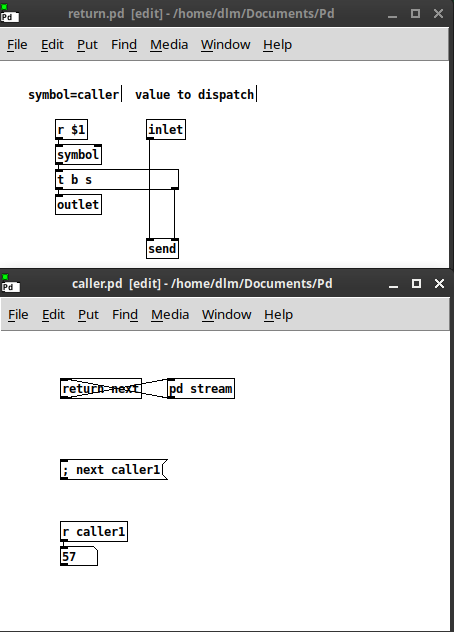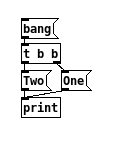@porres No help file, usage notes in asStream.pd, this thread is the documentation. If I ever get it to the point where I don't think there will be any major changes I will upload it with help files over in Abstractions. But a new version, reworked it as an array object since that is what it really is. Also added looping. Still needs lots of work to be a useful abstraction for more than learning from, it is kind of fun though and eventually I will develop it more.
@ddw_music said:
Though this means that your approach could be used only in self-timed situations,
Just need to change [obj 10 10 stream $1 $2 $3...( to [obj 10 10 $1 $2 $3...( and add in some simple logic and now asStream can load the abstraction you specify through methods/arguments. As I said earlier, you design the interface and the protocol which is what those sends and receives and values and dollar arguments in asStream are, an interface and protocol for communicating with the stream.pd abstraction or any other abstraction designed to work with that interface. Object names themselves can also be filled in through arguments, [$1 $2] can be either a metro or a receive or anything else but [$1 $2 ....] are actually [list]s so they only give you two inlets and one outlet, if you need more than that you need to resort to editing the abstraction in a text editor, patch it together with any object with suitable io and then open it in a text editor and edit that object into $1 $2... And there is plain old dynamic patching to programmatically create the required patch. Lots of option and they can all be mixed.


 If the programming-ese terminology is too difficult, maybe focus on that example.
If the programming-ese terminology is too difficult, maybe focus on that example.

